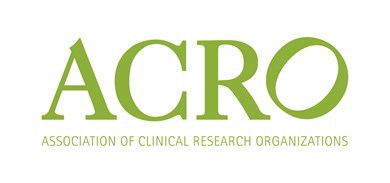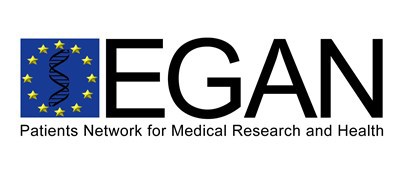Industry, researchers and patients warn of the importance of upholding competitive clinical trial authorisation timelines ahead of trialogue agreement





27 November, Brussels – Clinical trials are conducted globally and there is increasing international competition in this area because clinical research creates jobs, drives academic excellence and delivers innovative medicines for patients. Improving the attractiveness and competitiveness of Europe as a prime location for clinical research was a key driver for the revision of the EU clinical trial legislation, which aimed to reduce unnecessary red tape whilst preserving, the quality and safety of clinical trials.
The European legislators are expected to reach a compromise on the Clinical Trials Regulation before Christmas. EFPIA, EuropaBio, ACRO, CRUK & EGAN call on all parties to bear the drivers of this legislative revision in mind and take the steps needed to grow EU clinical research. It is imperative to build on Europe’s innovative edge – not just for competitive reasons, but because innovation is the tool needed to deliver new and improved medicines to patients.
The longer the regulatory process takes to approve a clinical trial or process regulatory procedures around it, the greater the cost of the trial. Higher costs can result in fewer trials being run, reducing our ability to understand treatments better. Harmonised and streamlined approaches are needed in the future. Towards this end, we strongly support the path set out by the Commission as well as the European Parliament in ensuring competitive timelines for these authorisations, and urges the Council to support this approach moving forward. We reiterate the need to:
- Ensure that the timelines defined by the legislator are predictable and are no longer than the timelines already established in the current Directive;
- Streamline the process for the assessment of applications to conduct a clinical trial across the EU, by ensuring clear and competitive timelines for this process;
- Support a robust legislative mechanism to ensure compliance with these timelines;
- For the Commission to ensure support for EU Member States during the implementation phase to make certain the timelines in the legislation are met.
These views are also reflected by the (EORTC) European Organisation for Research and Treatment of Cancer opinion on the proposal for an EU Regulation on clinical trials.
EFPIA Director General Richard Bergstrom stated: “The timelines set out by the Commission are achievable – we can look to Belgium and the United Kingdom as examples for best practice. Where adjustments to national regulatory systems are required, these should be regarded as investment in the future: My member companies invest around €20 billion every year on clinical research in Europe, and clinical trials contribute to economic growth, attract high-skilled jobs and foster an innovative European research community.”
Alastair Kent OBE, President of EGAN, said: “It is important for European patients that research happens here in Europe. We want to see a proportionate approach to regulating clinical trials that will foster the innovation that is necessary to solve our unmet health needs. Keeping medical research in Europe will allow European patients to continue to be partners in the research that so many of us desperately need.”
Miriam Gargesi, Director of Healthcare at EuropaBio stated: “EuropaBio recognises the need for competitive assessment timelines to ensure an attractive regulatory environment for clinical research. We believe that there is no scientific justification for longer assessment timelines if we want to continue to deliver new and innovative medicinal products to patients.”
ACRO stated: “The clinical research organisations (CROs) of ACRO conduct clinical trials throughout the world, and we would deeply regret any retreat from efforts to establish consistent and attainable timelines for the approval of trial applications in Europe,” said Douglas Peddicord, Ph.D., ACRO Executive Director. “Any reduction in the scientific and economic competitiveness of the European Union will hurt patients, whose access to new therapies will be delayed.”
Sara Osborne, Head of Policy at Cancer Research UK: ““Clinical research funded by organisations like Cancer Research UK - which is entirely supported by generous public donation - is crucial to improve our understanding of existing treatments as well as developing new ones. We’re pleased with the suggested Clinical Trials Regulation and believe that it will provide a much needed improvement for the clinical research environment.”
Media Contacts:
EFPIA Communications / communications@efpia.eu / +32(0)2 626 25 55
Rosalind Travers, EuropaBio Communications Manager, r.travers@europabio.org / +32 (0) 2 7391173
About EFPIA
EFPIA represents the pharmaceutical industry operating in Europe. Through its direct membership of 33 national associations and 40 leading pharmaceutical companies, EFPIA provides the voice of 1,900 companies committed to researching, developing and bringing new medicines to improve health and quality of life around the world. The pharmaceutical industry invests 30 billion on research and development per year in Europe and directly employs 700,000 people including 116,000 in R&D units in Europe.
About EGAN
The Patients Network for Medical Research and Health (EGAN) is an alliance of both national genetic alliances and European disease specific patient organisations with a special interest in genetics, genomics and biotechnology. Especially, but not only, genetic disorders are represented within EGAN. EGAN is working for a voice in research and health policy and seeks a world in which genetic and other serious diseases are understood, effectively treated, prevented and the people affected supported. www.egan.eu
About EuropaBio
EuropaBio is the European Association for Bioindustries, bringing together bioscience companies from all fields of research and development, testing, manufacturing and distribution of biotechnology products. It has 56 corporate members, 14 associate members and Bio Regions and 19 National Biotechnology Associations- representing some 1800 small and medium sized enterprises across Europe.
About ACRO
The Association of Clinical Research Organizations (ACRO) represents companies that provide a variety of specialized services that support the development of new pharmaceuticals, biologics and medical devices. The association provides an active voice for the CRO industry globally. Through its member companies, ACRO helps improve the quality, efficiency and safety of biomedical research. ACRO member companies employ approximately 100,000 professionals worldwide and annually conduct more than 11,000 clinical trials involving nearly two million participants in 115 countries. For more information, please visit www.acrohealth.org. Twitter @acrohealth. YouTube @ACROHealthChannel.
About Cancer Research UK
Cancer Research UK is the world’s leading charity dedicated to saving lives through research. Our groundbreaking work into preventing, controlling and curing all types of cancer has seen survival rates double in the last 40 years. We funded over £330 million of research in 2012/13, supporting the work of more than 4,000 researchers, doctors and nurses. We receive no government funding for our research. / www.cancerresearchuk.org / press office 020 3469 8300